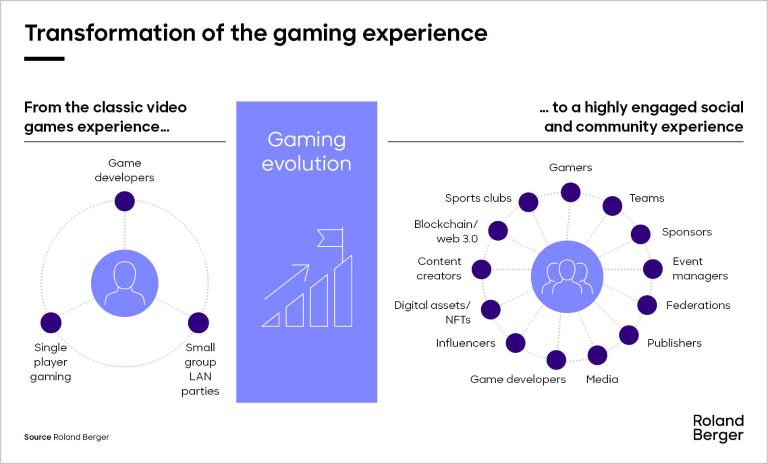In recent years, the gaming industry has witnessed a significant shift in the way players interact with digital content, driven largely by the emergence of account purchasing. For those interested in exploring this phenomenon more deeply, the article https://www.b92.net/english/promo/112996/the-new-era-of-gaming-the-rise-of-account-purchasing-in-video-games/vest provides an insightful overview. The rise of account purchasing signifies a new economic model in which players seek to bypass traditional progression systems by acquiring fully developed or rare accounts, profoundly altering the landscape of gaming economies.
This transformation has resulted in an entirely new marketplace where in-game achievements, skins, characters, and rare items are commodified in a secondary market. Rather than grinding endless hours, players often prefer to invest in accounts with established reputations or high-tier content. This shift is supported by the growing availability of third-party platforms that facilitate secure transactions and offer guarantees to buyers, which enhances trust in this once shadowy aspect of gaming culture.
However, this evolution is not without controversy, as it challenges the principles of fair play and the original game design’s intended player experience. Game developers are now confronted with the dilemma of whether to incorporate account purchasing elements officially or take a strong stance against it. Moreover, this trend raises important questions concerning account ownership, security, and the ethical implications surrounding monetizing digital identities.
Motivations Behind the Surge in Account Purchasing
The rapid growth of account purchasing in video games can be largely attributed to the changing desires and lifestyles of modern gamers. Many players today seek instant gratification and wish to engage in competitive or social gameplay without dedicating months or even years to leveling up characters or unlocking exclusive content. By purchasing established accounts, they can jump straight into the action.
Additionally, the social aspect of gaming plays a crucial role. High-ranking accounts often carry significant prestige within player communities, leading to increased demand for accounts with rare cosmetics or achievements. The value placed on digital status symbols drives players to invest financially in accounts that symbolize success and exclusivity.
From a practical standpoint, some players turn to account purchasing to regain access to games or content lost due to account bans, hacking, or inactivity. The frustration associated with starting over on newer, less developed accounts incentivizes the purchase of fully-realized profiles. Consequently, platforms dedicated to account sales have expanded to meet these diverse needs.
Despite the convenience offered by account purchasing, it is important to acknowledge potential risks such as scams or account recovery issues. Yet, the persistent demand highlights the evolving mentality within gaming communities, where time investment often competes equally with monetary investment as a path to achieving in-game success.
Implications for Game Developers and Industry Stakeholders

The proliferation of account purchasing presents both challenges and opportunities for game developers and industry stakeholders. On one hand, it threatens the traditional revenue streams based on in-game purchases and progression mechanics. When players bypass normal gameplay progression, it can devalue the time-based reward systems that help maintain long-term engagement.
However, some companies are adapting by introducing official marketplaces or allowing account trading within their ecosystems, thus gaining control over these transactions and generating new revenue streams through fees and commissions. This shift forces developers to reconsider their game design philosophies, focusing more on player autonomy and the value of digital goods.
One notable impact is the increased attention to account security and anti-fraud mechanisms, as unauthorized sales and hacking attempts rise alongside the market demand.
Furthermore, legal and ethical considerations regarding account ownership rights require clearer policies to protect both players and developers. The industry is in the process of finding a balance, where account purchasing is neither wholly banned nor unchecked, but managed in a way that maintains game integrity and player satisfaction.
Future Trends: The Evolution of Digital Identity in Gaming
The phenomenon of account purchasing is a precursor to a broader trend regarding digital identity within gaming and virtual environments. As games increasingly incorporate blockchain technologies, NFTs, and interoperable assets, the concept of owning a gaming profile with verifiable rarity and value is becoming the norm rather than the exception.
This development hints at a future where player accounts will function as more than just profiles—they will be comprehensive digital identities with inherent economic and social value. This has the potential to transform gaming into a space that merges entertainment, social networking, and commerce seamlessly.
Given these possibilities, account purchasing could evolve into a more regulated and sophisticated market, featuring enhanced security, transparent transactions, and even player-to-player leasing or sharing options. Digital identities may also become portable across different games or platforms, emphasizing the importance of ownership and personalization.
As the gaming industry embraces this new era, the interplay between technology, economics, and player culture will define the next generation of interactive entertainment.
Overall, the rise of account purchasing symbolizes an important shift in how gaming value is perceived and exchanged, marking an exciting chapter for players, developers, and the broader digital ecosystem alike.